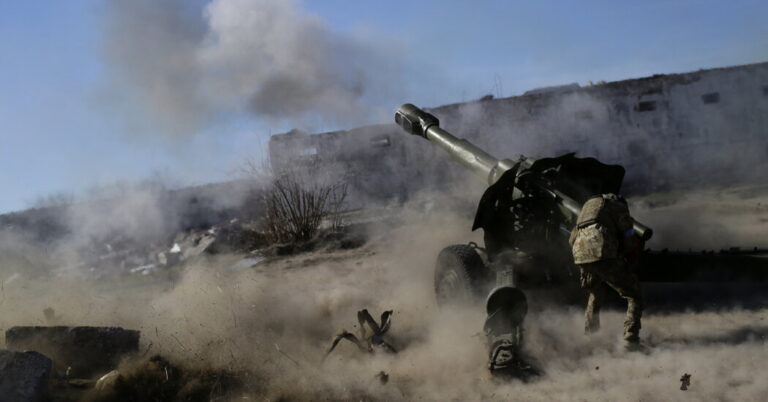Trump Seeks to Delay Jan. 6 Civil Cases
Lawyers for former President Donald J. Trump asked a judge on Tuesday night to pause a group of civil lawsuits seeking to hold him accountable for the violence at the Capitol on Jan. 6, 2021, until after his federal criminal trial connected to the same events was over.
The request by the lawyers to pause the civil cases was the latest example of Mr. Trump trying to pit his multiple legal matters against one another in an effort to delay them. In the past several weeks, the former president and his lawyers have managed to gum up each of the four criminal cases he is facing, sometimes by persuading judges that the timing of the various proceedings were in conflict with one another.
In their request for a pause in the civil cases, Mr. Trump’s lawyers told Judge Amit P. Mehta, who is overseeing the proceedings, that it would be unfair to the former president to be forced to defend himself against the suits at this point. They said that in so doing, he might reveal his strategy for defending himself against related criminal charges brought against him by the special counsel Jack Smith.
“Given the substantial overlap in factual and legal allegations between these cases and the D.C. criminal case,” the lawyers wrote, there is “a substantial risk that proceeding in this matter now will expose the defense’s theory to the prosecution in advance of trial.”
The lawyers added, “This would prejudice President Trump’s ability to effectively defend himself in both these civil cases and the special counsel criminal matter.”
In the months after Jan. 6, a half-dozen lawsuits were filed against Mr. Trump by members of Congress and police officers who served at the Capitol that day, accusing him of inciting the mob that stormed the building. The lawsuits, which all are being heard in Federal District Court in Washington, have sought unspecified financial damages from Mr. Trump.
The former president initially attempted to defend himself against the suits by arguing that he was immune from the allegations because they arose from official acts he took while he was president. In December, a federal appeals court in Washington ruled that the cases could move forward, but ordered Judge Mehta to decide whether Mr. Trump’s fiery speech on Jan. 6, in which he urged his supporters to march to the Capitol, should be considered an official act of his presidency or a part of his re-election campaign.
That fact-finding process — which has not yet started — is what prompted Mr. Trump’s lawyers to ask for the pause. The lawyers have said that if the former president or his allies are forced to provide information about the nature of his speech or about any other remarks he made concerning Jan. 6, it could be used against him by prosecutors in the criminal case.
If Judge Mehta agrees to pause the civil cases, it is unclear when they might resume. The criminal case itself has been on hold for months as a series of courts have considered a similar immunity defense raised by Mr. Trump. The Supreme Court is poised to hear arguments on his immunity claim on April 25.
If the justices move quickly in issuing a decision — and assuming they reject the immunity claim, as many legal experts expect — Mr. Trump’s Jan. 6 criminal trial could start in September. But if they take their time in handing down a ruling, the trial might be pushed to after the election in November.
Check out our Latest News and Follow us at Facebook
Original Source







